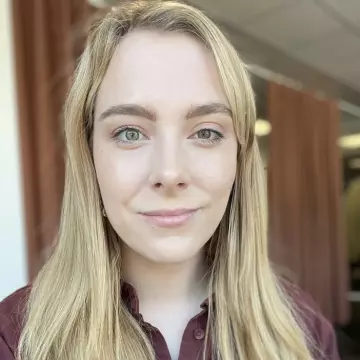His story is a tale of conflict, poverty, war and injustice
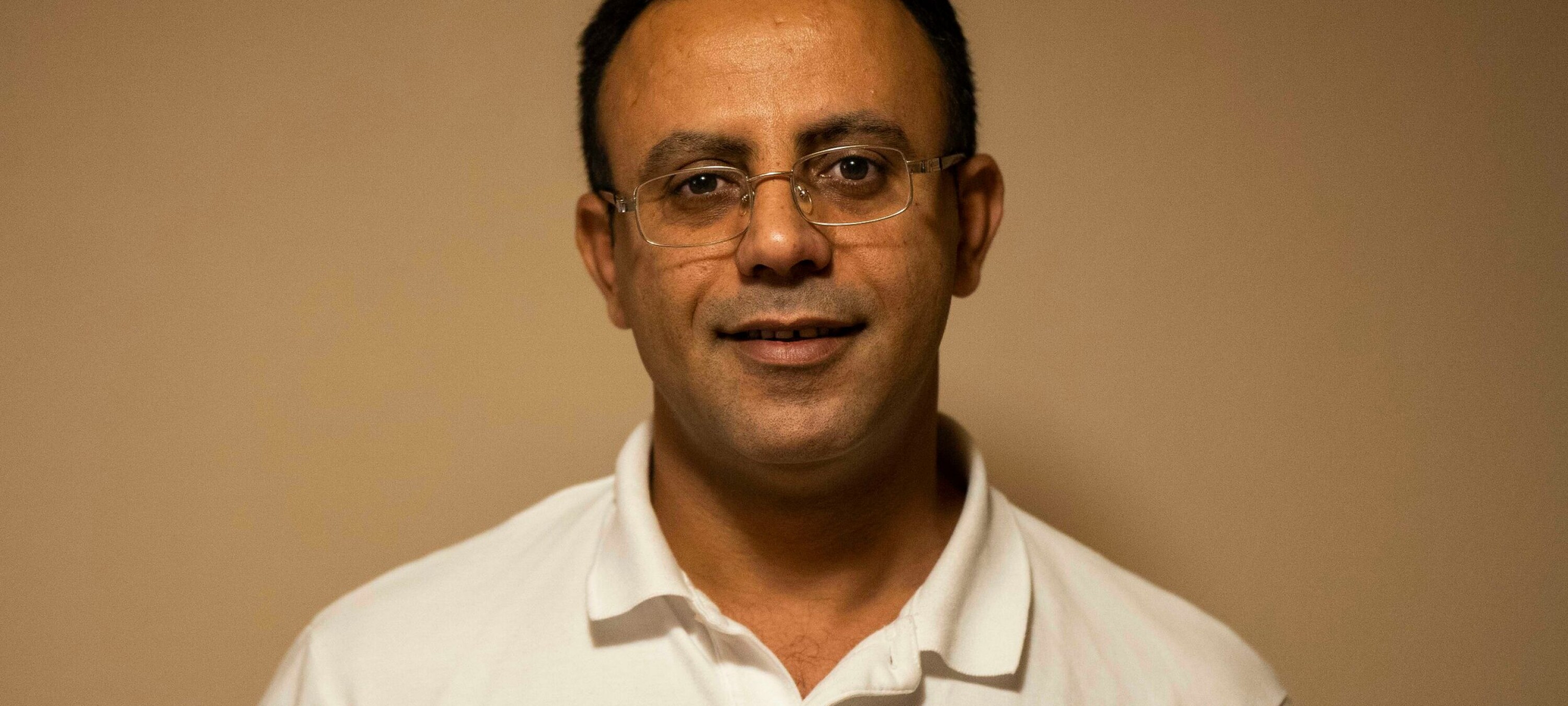
But it is also a history of lifelong love of knowledge,
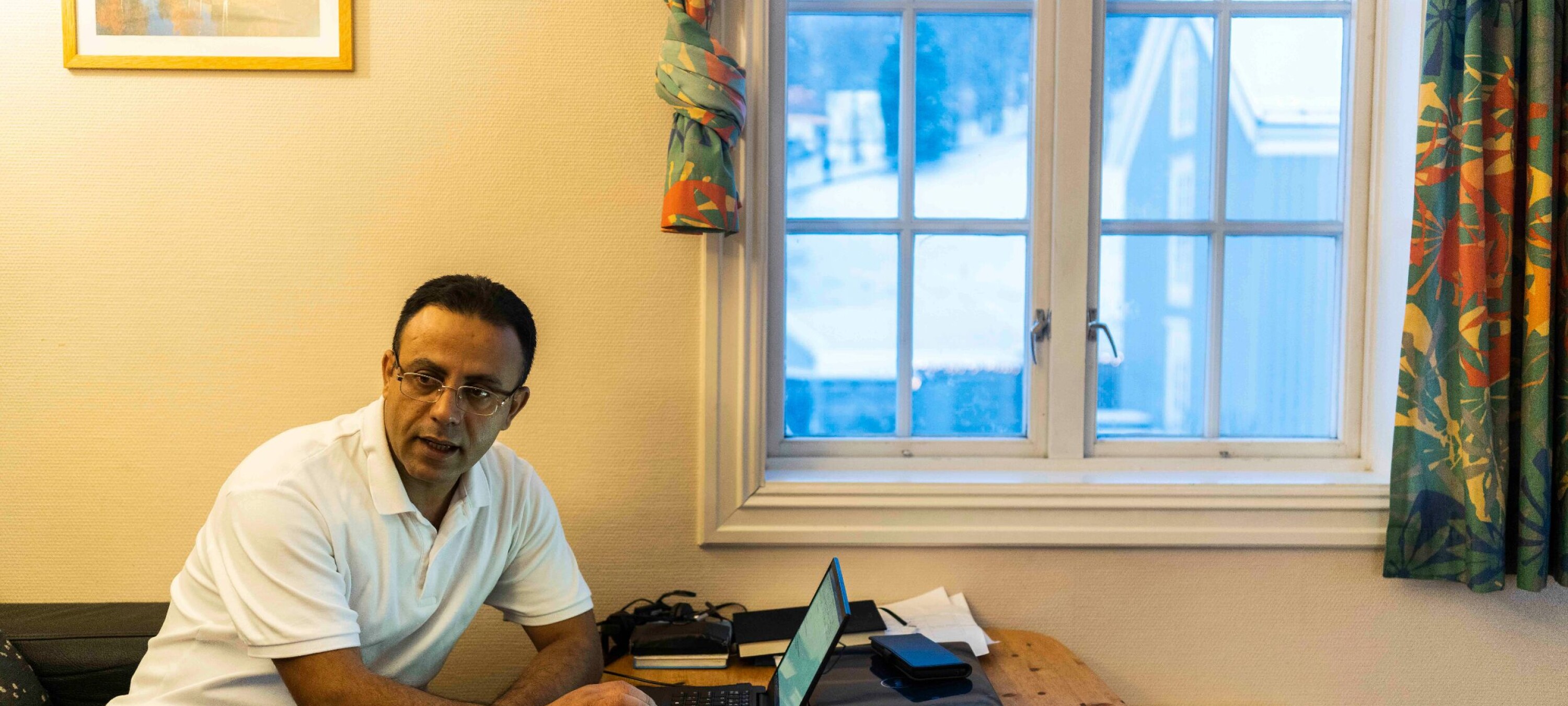
and of life.
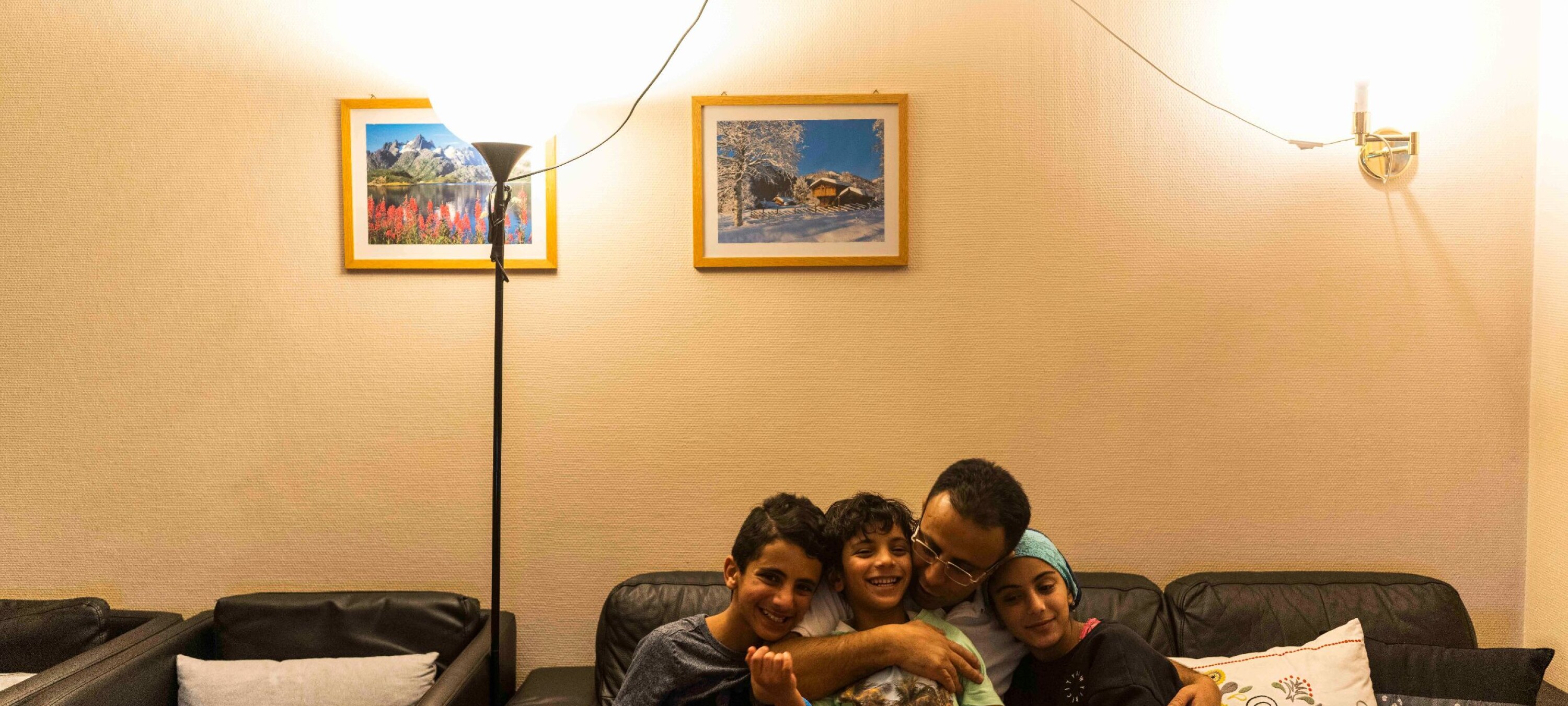
Scholar against all odds
OBS! Denne artikkelen er mer enn tre år gammel, og kan inneholde utdatert informasjon.
Trondheim (Khrono): It is one of those days where the cold rips your nose, cuts through your woolen underwear and drills into your bones. But when Abdulghani Muthanna opens the door to the apartment where he and his family live there is not a trace of cold or discomfort – even though it becomes clear that the Norwegian climate is not the Muthanna family’s favorite.
In the living room, now serving as an home office, sit Ali (12), Fatima (11) and Ameer (6). In the kitchen, wife Samar is in full swing preparing tea and fruit for the visitors. Dressed as Spiderman, Ameer, runs around the living room and Ali, the oldest, eagerly shows the apartment to the visiting journalist and photographer. Fatima offers a shy smile, seated next to her dad. On the surface, they look like any other family.
But as Abdulghani tells his story, we learn that this normal, every day life hasn’t always been the norm.
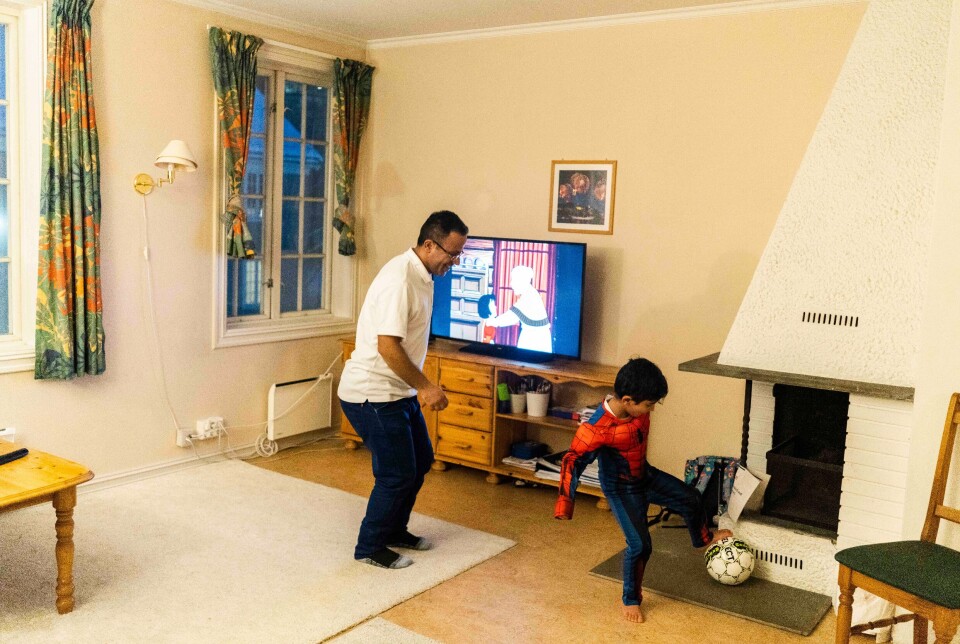
The Search for Knowledge
Abdulghani Muthanna came to Norway for the first time in 2018 as a guest lecturer at OsloMet. He has good memories of Khrono and happily tells of his smoke breaks outside the editorial offices at Pilestredet.
In August of 2020 he moved to Trondheim and NTNU where he is now provisionally employed as a lecturer at the Faculty of Social and Educational Sciences. Ten months later in February of 2021, he finally reunited with his family. He had then been away from his family for seven years.
— The situation then in Yemen was already tense, Muthanna recalls
After getting his master’s degree in Turkey, a doctorate was next. At that time, he was already well known in the academic circles within Yemen, and he applied for several doctoral fellowships. After becoming shortlisted for several of them, he attracted the attention of Yemen’s Minister of Education. A well-articulated teacher with an education from abroad looked good on paper.
Muthanna sighs.
— The caste system in Yemen is still very influential and much depends upon it. I was born into a poor family and lacked the right connections. You can be the most qualified man in the world, but without the right connections and without money, you don’t come very far.
In Yemen, the prestige of being well-educated was more advantageous on paper for Muthanna. When he finally was offered a fellowship at an Australian university, his application for financial help to the government was never answered. After three years of substitute teaching, low wage work and application rejections, he finally received a fully financed fellowship from China. After being there for three years, he returned to Yemen where the war was now raging.
— Because of the war, there was more than the usual corruption in Yemen. The country is actually very rich, but those who run it only want to use the resources to their advantage. The people get the short end of the stick, and whatever is left, Muthanna says.
Freedom of expression was prized and protected, even in Yemen. That is no longer the case. When describing the situation in his homeland and his experiences there, Muthanna does so first and foremost as a scholar. Even though he is a well-publicized critic of the situation in Yemen, he dares not to do so as a private citizen.
— In that aspect, I’m lucky. They don’t read English, he chuckles.
But his smile vanishes almost as fast as it appeared.
— Even here, I am afraid. There are still many places in Yemen I want to visit and experience. For openly criticizing or commenting on the political situation there, I risk being arrested and punished the day I return.
His punishment?
Prison at best, torture and death at worst. Not only for him, but also for his relatives and friends still in the country. His way of fighting back is the way he knows best: By conducting research and spreading his knowledge around the world.
For me it is all about love. I love teaching and I love research. Even if I did not have the same opportunities as I do now, I would still teach in one form or another – and I will continue to do so until the day I die.
Abdulghani Muthanna
The Turning Point
Muthanna’s work of exposing and enlightening the situation scholars on the Arabian Peninsula face, has led to several meaningful The Scholar Rescue Fund and Scholars at Risk. The former awarded him with a financial fellowship and appointed him as an ambassador for them in 2020. Thanks to the latter, he gained his academic positions in Norway and also the reunion with his family.
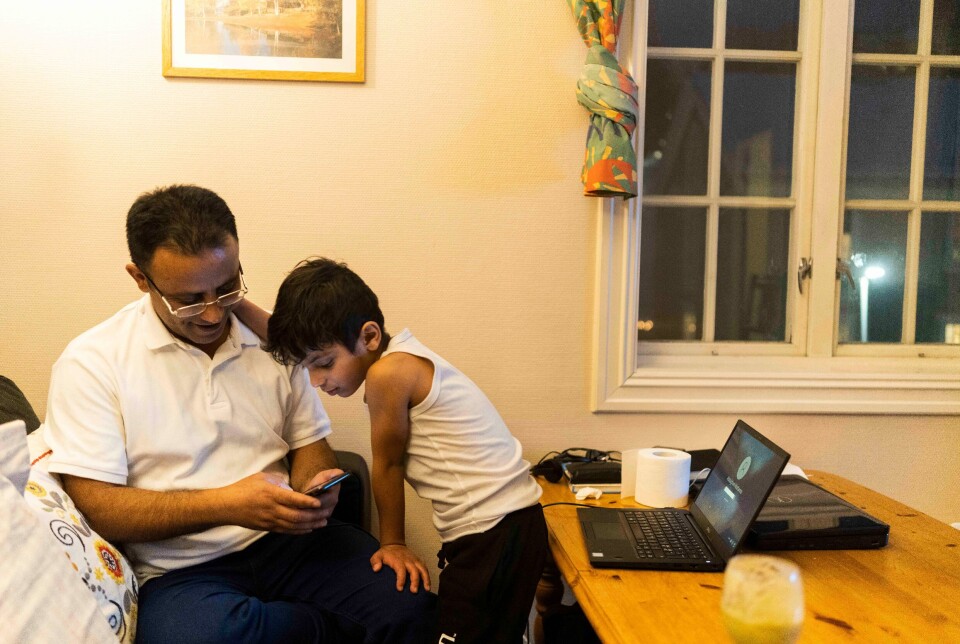
— They (Scholars at Risk at NTNU) paid so that my family could travel to Norway. UDI (the Norwegian Directorate of Immigration) handled their application in record time. It is difficult for me to find the words for how grateful I am, both to Norway and to the organizations supporting my work.
Muthanna estimates that he has probably applied for several hundred fellowships during his career. Even now, he searches the job portal each day for the final piece of the puzzle – a permanent position.
— What do you think of the internationalization of academia?
— We can talk much and at length about how there are too many foreign academics in Norway, but that is beside the point. We all have a role to play in wanting to change the world. All the different perspectives we possess are central to carrying out this task.
More and more are giving up their dreams of becoming scholars. The words «give up» does not exist in Muthanna’s vocabulary, even though he admits that he has become less resilient through the years.
— In Norway or any other country, there will always be tough competition in academia. My advice is to never give up or lose that belief in yourself, nor the importance of your work. I know that I will achieve what I want for myself. If it’s not today, there is always tomorrow.
The new normal
Optimism in the Muthanna family runs deep and carries over to his Norwegian, where Abdulghani’s favorite words are «Ja!», «Det går bra!», and the not so often used «Ta det med ro»*.
When the children come home from school, Muthanna often stands at the window waiting for them. When his family is gathered, there are seldom many intervals between hugs and kisses.
— Every day when the children come home from school, we have the same welcome ritual:
«Hei på deg! Jeg elsker deg!» **
The three children, crammed together next to the journalist on the sofa, listen to his father while laughing and blushing at the comments.
Abdulghani brags and brags about the children every chance he gets. Ameer will become the greatest football player in the world, no one is more beautiful than Fatima, and Ali, the oldest, has become all muscles since coming to Norway.
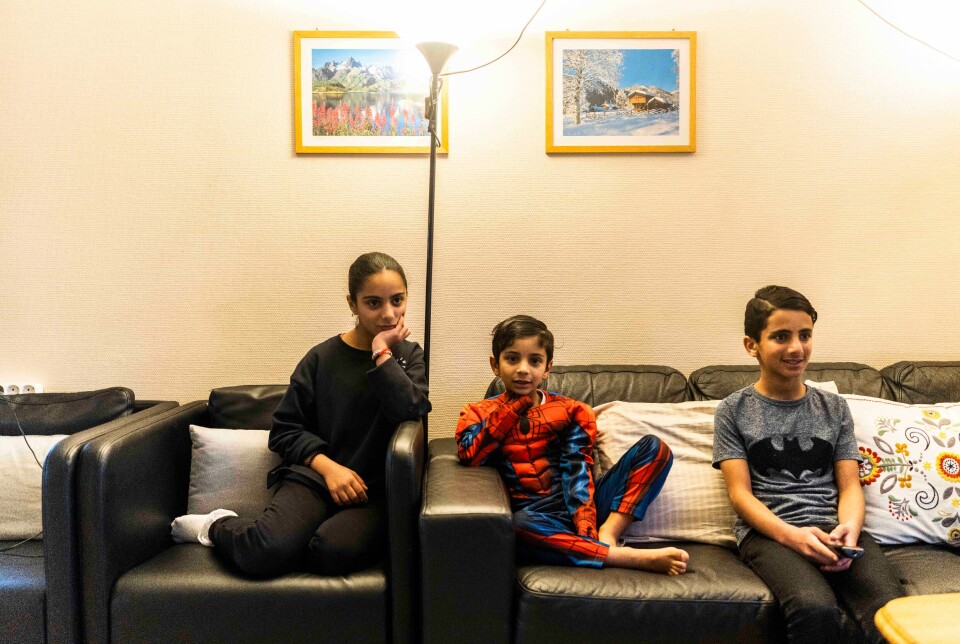
But first and foremost, Muthanna is proud of how quickly the children have adapted to their new homeland – especially the language and at times the not so charming climate.
— The children love snow, even the cold – even though their parents are still struggling with Norway’s climate, Muthanna laughs.
Wife Samar has many times asked her husband to seek positions in Norway where «there is sun all year round».
— But I don’t think she knows that it is colder up there, he says and laughs.
— Why Norway?
— For me, it was important that Norway is one of the leading nations when it comes to working for peace and that Norwegians themselves are very peaceful. The climate, unfortunately, is not as nice.
—-Norwegians first and foremost have a reputation of being cold and shy?
— No, on the contrary! Being shy is a sign of respect. For me, that is what it is all about – respect.
For Samar everyday life has become something different. Not only does she have a new home, but she is spending her days with the family. The whole family.
Live is much quieter now. Stable.
— But I hardly slept the last three days before we became reunited, she says in Arabic and looks fondly at her husband.
— She says that it felt like she had the whole world in her arms that day, translates Muthanna and smiles.
— We all have a role to play
Behind every man stands a strong woman, also in this family. Muthanna can not thank his family enough. That they now are here, together in Norway, is greater than any publication or merit. They are his greatest achievement.
— When I see that they are smiling, my heart smiles too. They are proof that all my hard work has not been done in vain.
Now the plan is to stay in Norway. Forever.

— My children go to a Norwegian school and I learn more and more Norwegian each day. The only thing I lack for complete security in everyday life is a permanent position.
— If you got that job tomorrow. What would your next step be?
— I would continue doing what I can to make a better world to live in and to work systematically in gathering all the knowledge we academics possess. We have a role to play here if we are to improve the world.
— And if you are to be completely honest?
— Honestly, a vacation would be nice. But just a tiny one, Abdulghani Muthanna says with a laugh.
* Yes, Thats Okay, Take it easy!
** Hey you, I love you!


